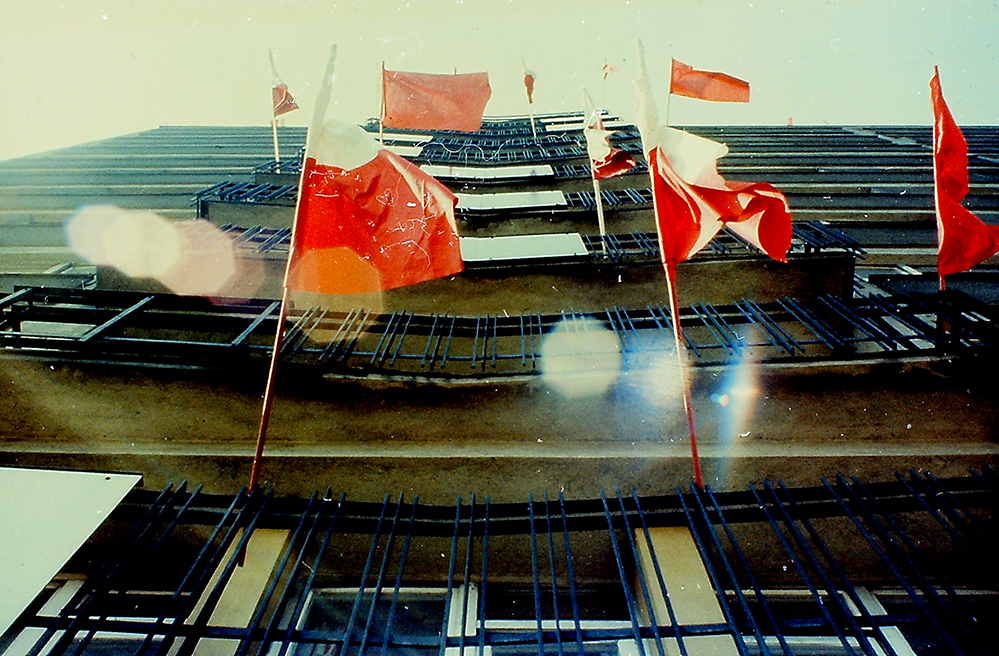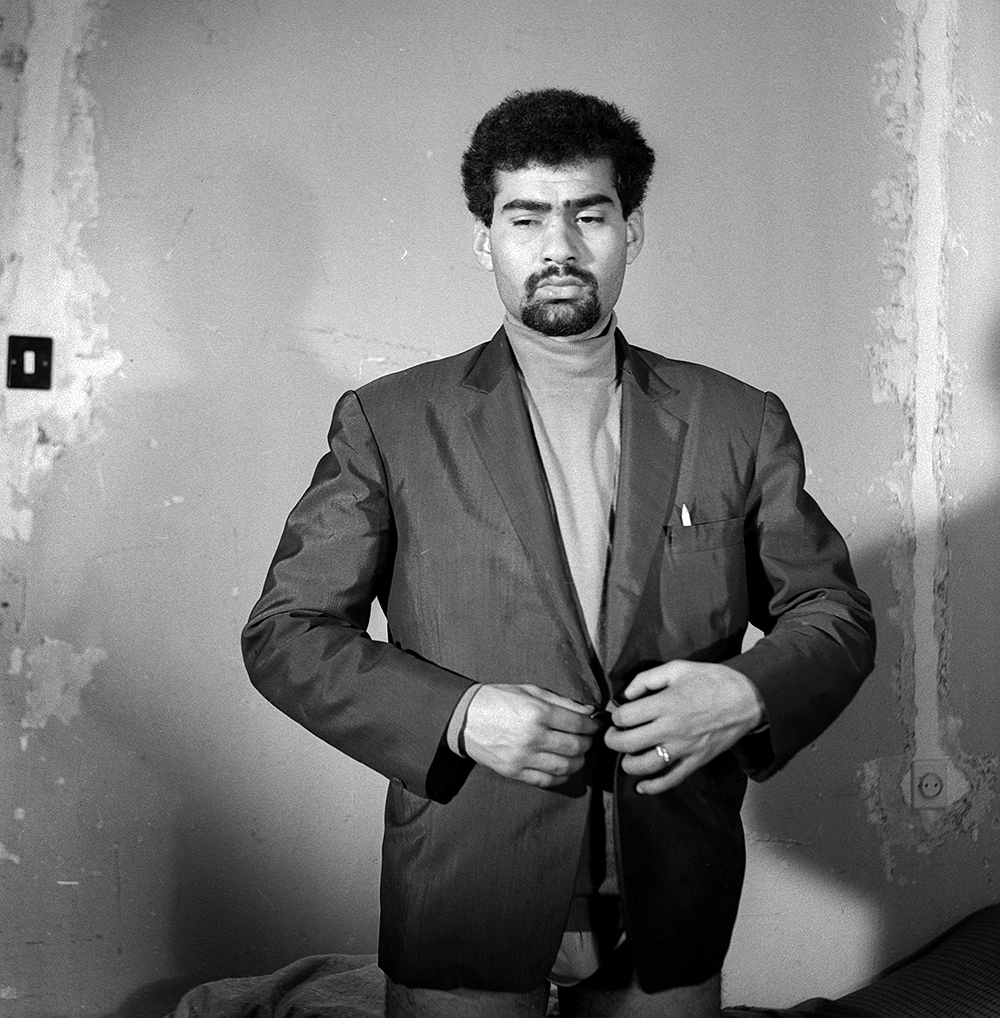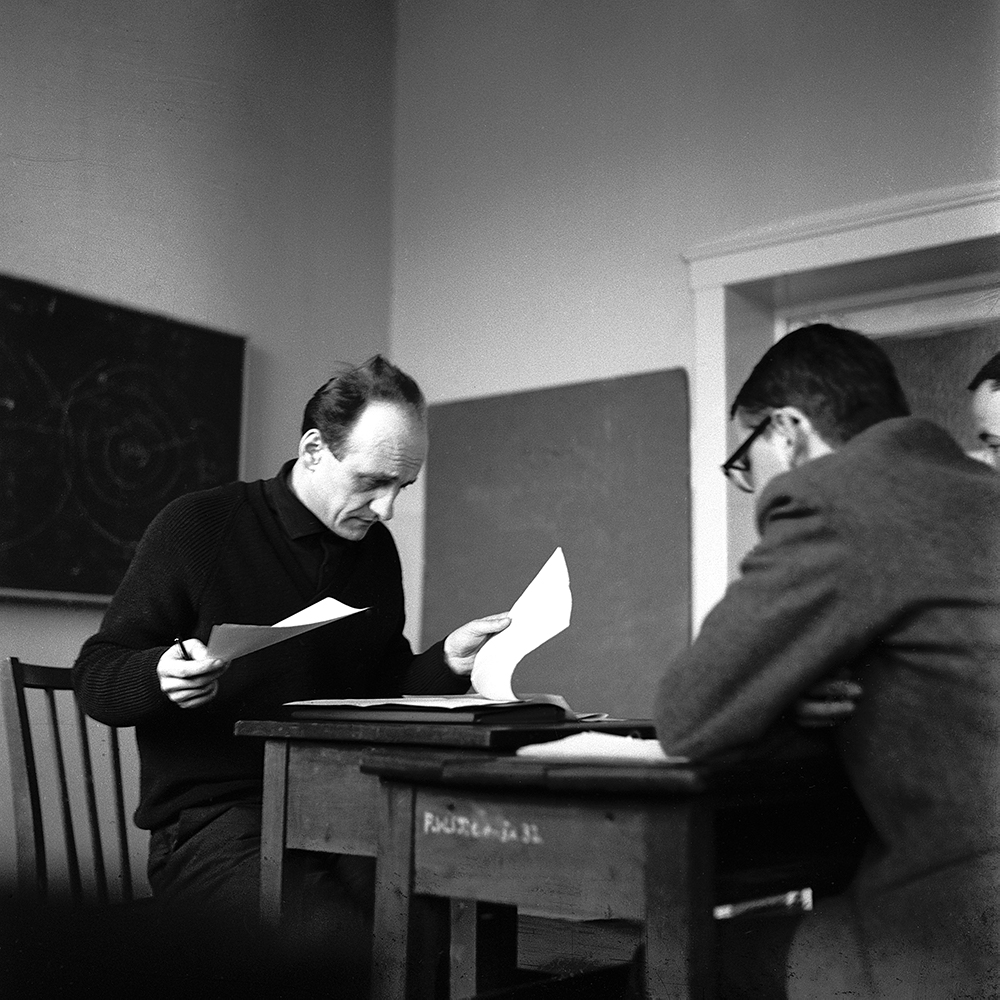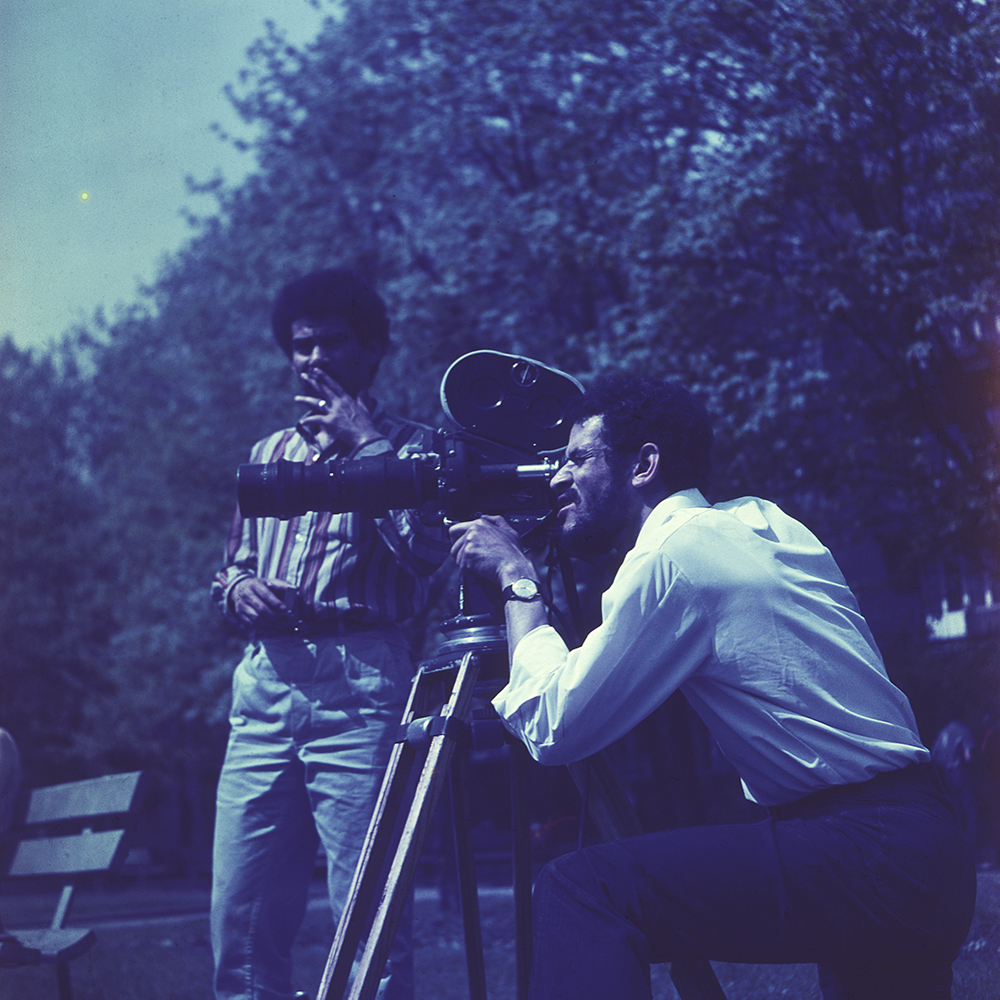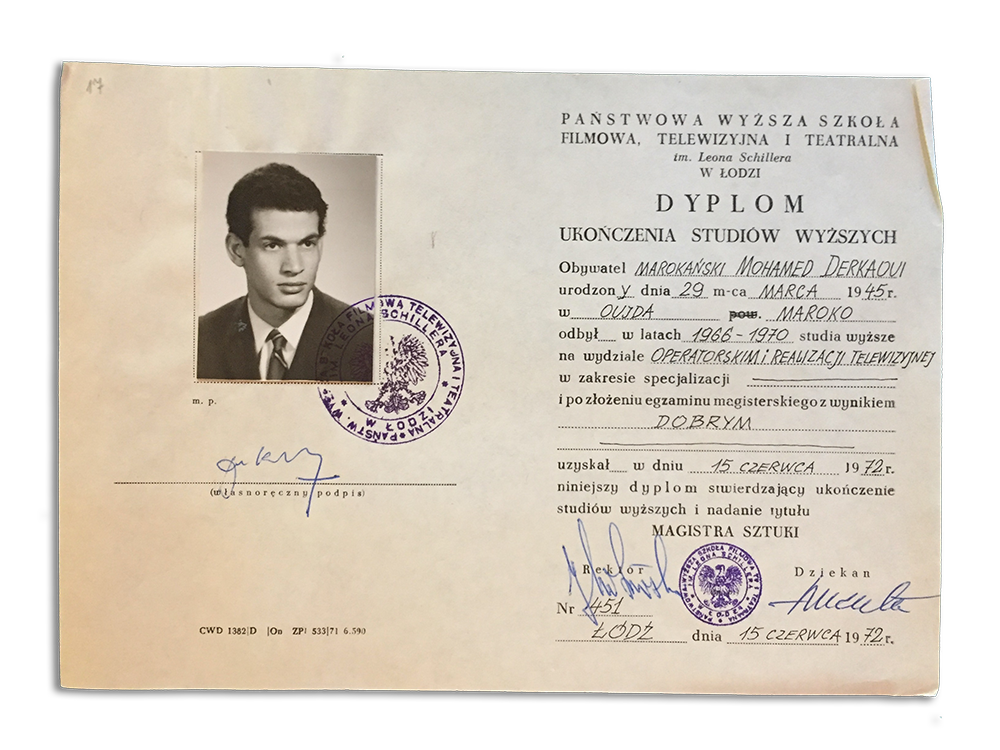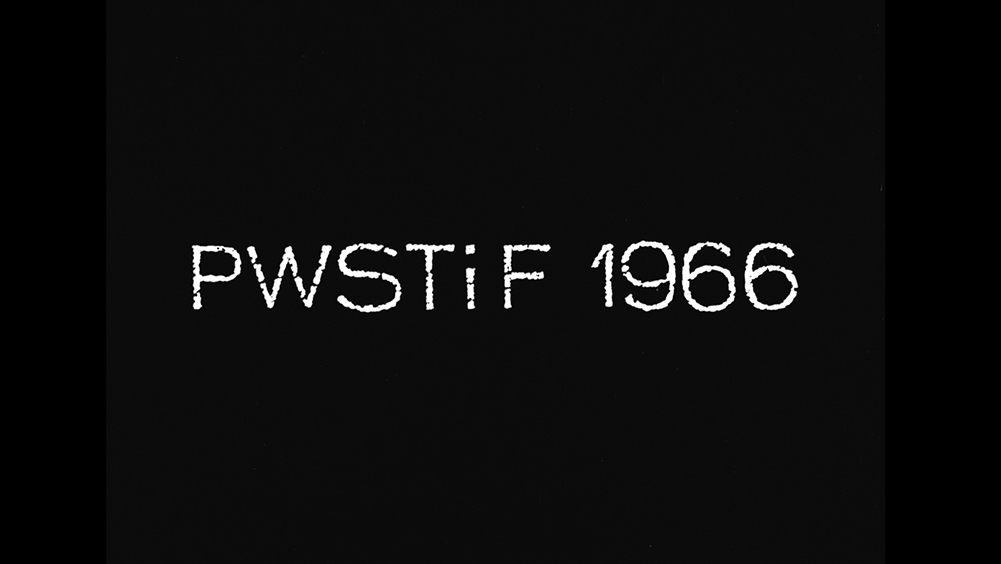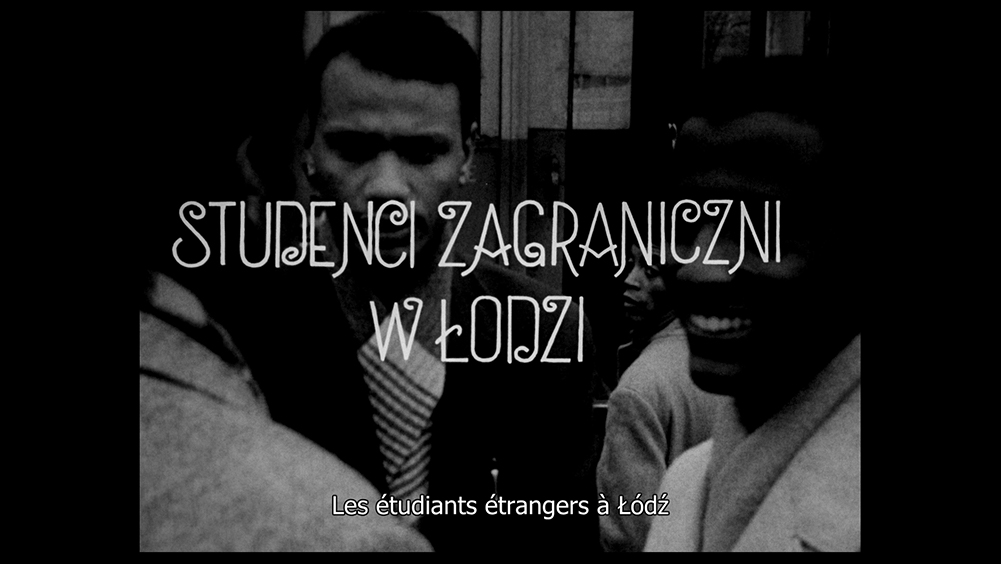1.
BABEL IN ŁÓDŹ
 The Tower of Babel, photograph by Abdelkrim Derkaoui, 1965 – 1966
The Tower of Babel, photograph by Abdelkrim Derkaoui, 1965 – 1966
A few years after Moroccan independence, Mohamed Ben Souda, Hamid Bensaid, Abdelkrim Derkaoui, Mostafa Derkaoui, Abdellah Drissi, Karim Idriss, and Abdelkader Lagtaa chose Poland to become filmmakers, by enrolling at the Leon Schiller National Higher School of Cinema, Television, and Theatre in Łódz. During that same period, many other foreigners went to Poland to become journalists, sociologists, engineers, and chemists. Before starting their courses, they all had to study Polish language and culture for a year at the Studium Jezyka Polskiego of Łódź, playfully nicknamed “The Tower of Babel”.
They came from Vietnam, Mongolia, Cuba, Chile, Algeria, Tunisia, Cameroon. And why was Poland their destination? At the time, the recently independent nation states of Asia, Latin America, and Africa tried to educate their elites in Europe, and established cooperation agreements to this end. Polish cinema and the Łódź Film School, where the great filmmaker Andrzej Wajda taught, had an international reputation, but it was particularly the IDHEC in Paris which received the greatest attention from Moroccan film students. Some chose other locations: Russia (Mohamed Abouelouakar), the United States (Mohamed Abbazi), or Belgium (Ahmed El Maanouni).
Communist Poland, in its desire to form a common front "against the imperialist enemy", encouraged students from "Third World" countries to attend its schools and universities by offering scholarships. The context was therefore favourable for these young, aspiring filmmakers who, amidst the political turmoil of the Independence years, also showed by their choice to study in the East their political engagement (they were often close to Marxist-Leninist parties) and a desire to distance themselves from the influence of the colonial power under which they had grown up.
At the Łódź Film School, Abdelkrim Derkaoui studied cinematography, while the others studied directing. They all took modules in art history, the history of philosophy, film and literature analysis, but above all they discovered world cinema, from the European classics, to experimental and politically engaged films, from Brazil’s cinema novo to Quebec’s cinéma-vérité.
During their studies, they were asked to make four films, called “studies”. These included two short movies: a silent fiction film, and a documentary; a medium length film with sound; and lastly, a graduation film. All films were shot using 35mm film roll. To successfully complete their studies, they also had to submit a dissertation.
In their Polish “exile”, the Moroccan student filmmakers at the Łódź Film School would benefit not only from a solid education, but also from a degree of political freedom far from the authoritative and repressive state of Hassan II’s reign, from more perspective on their own reality, and also from a “global” experience of the world and its political upheavals, in the heart of Eastern Europe, surrounded by students from across the world, particularly Asia, Africa and Latin America.
Copyright © 2020 / Léa Morin — CINIMA3 / Talitha
